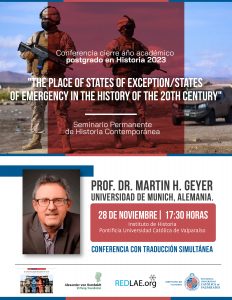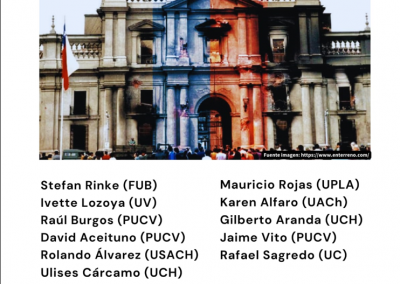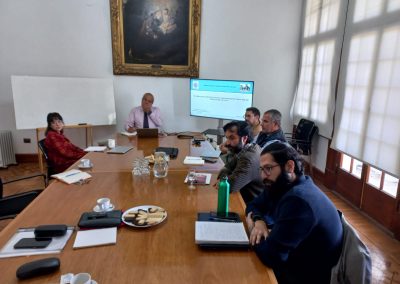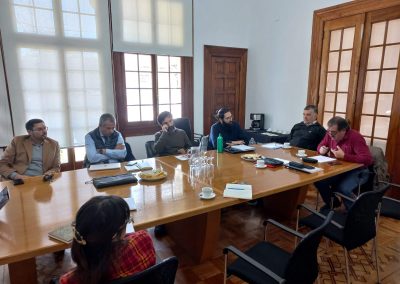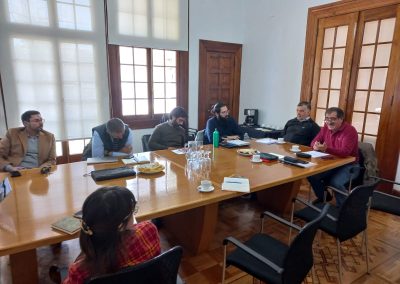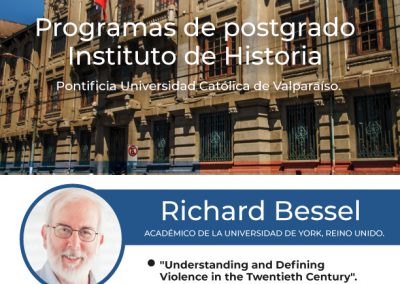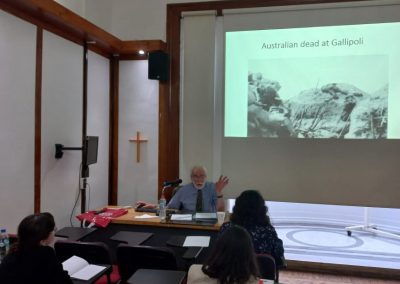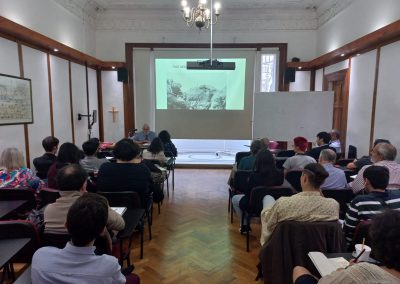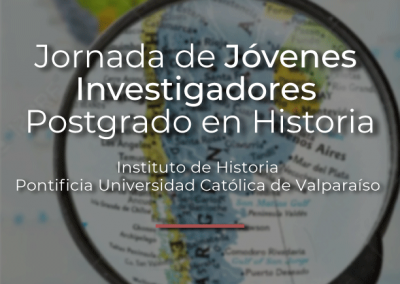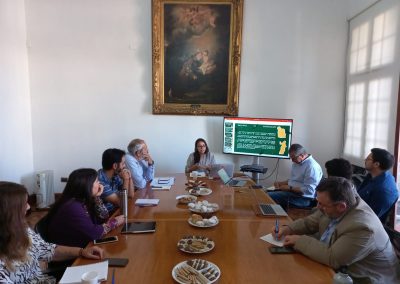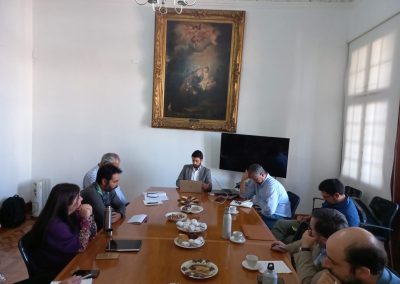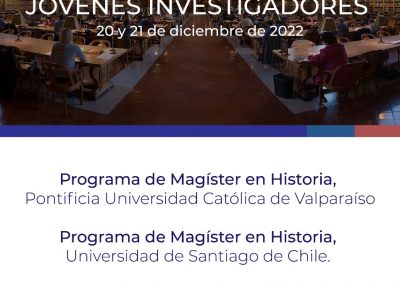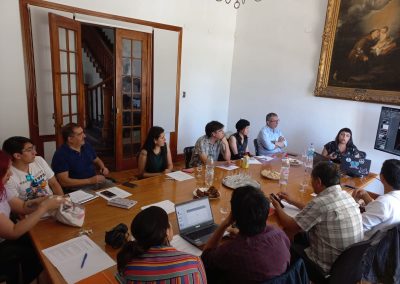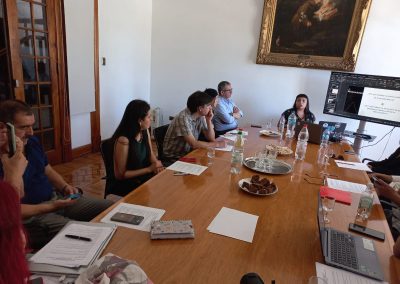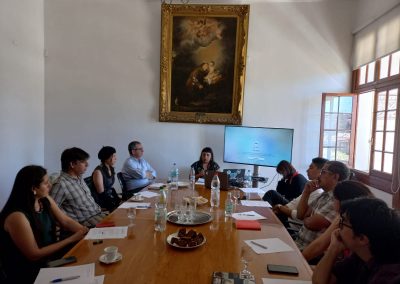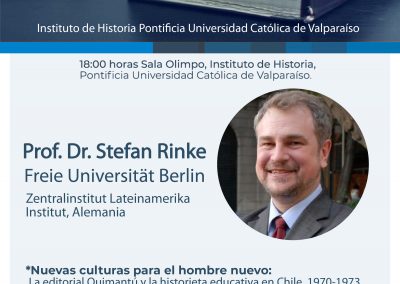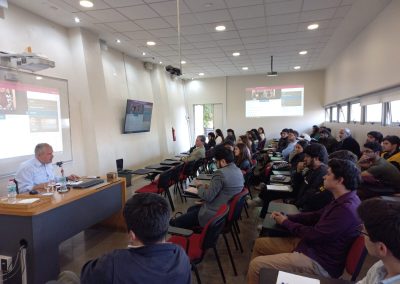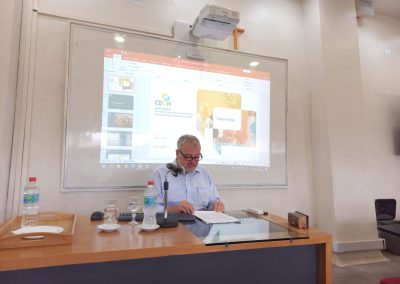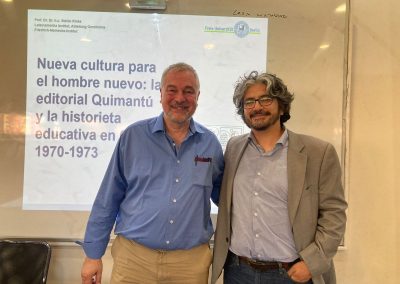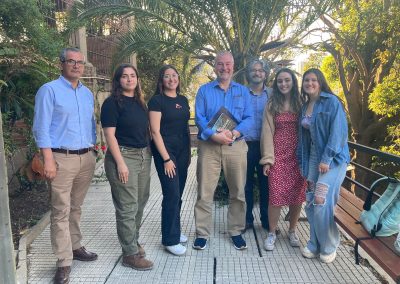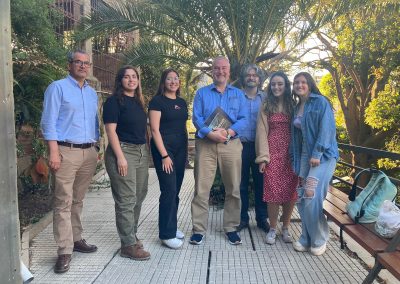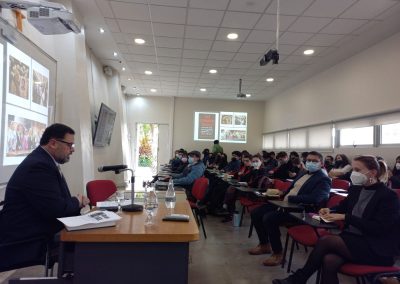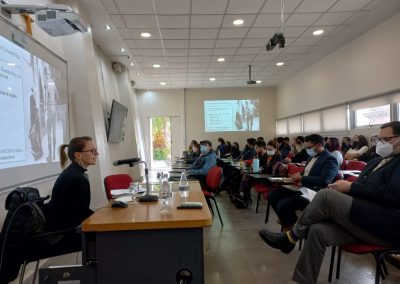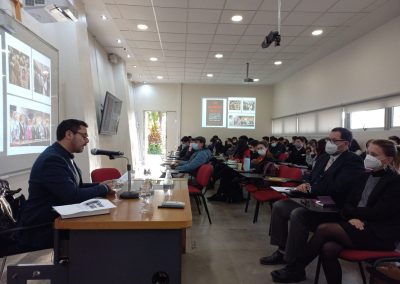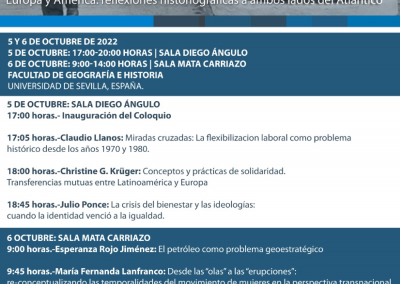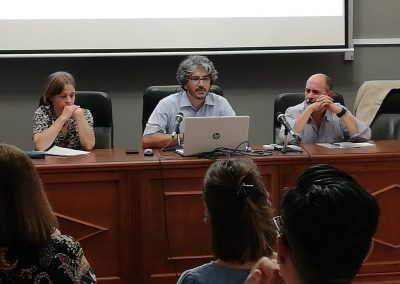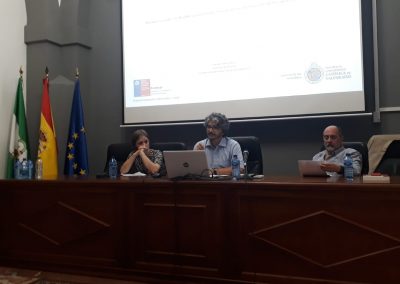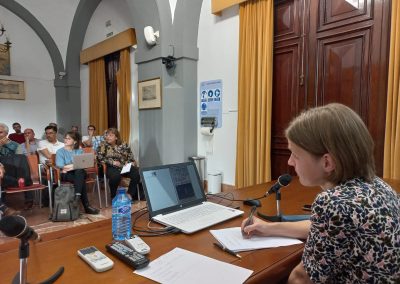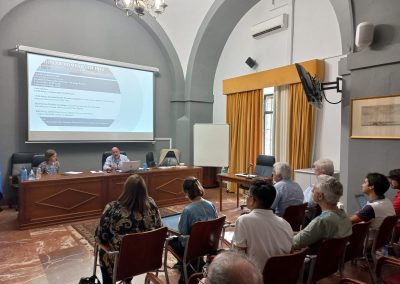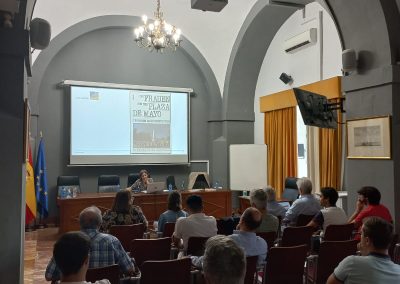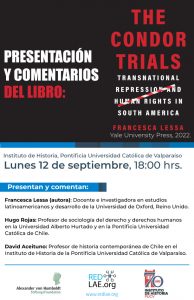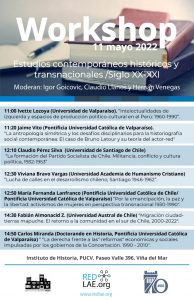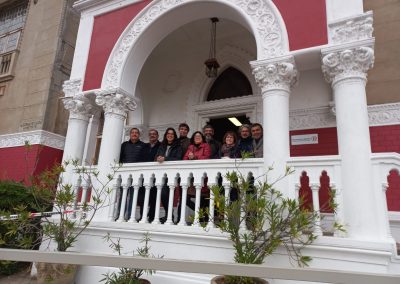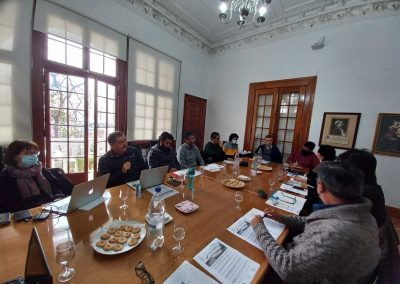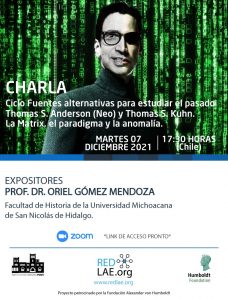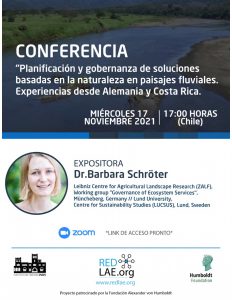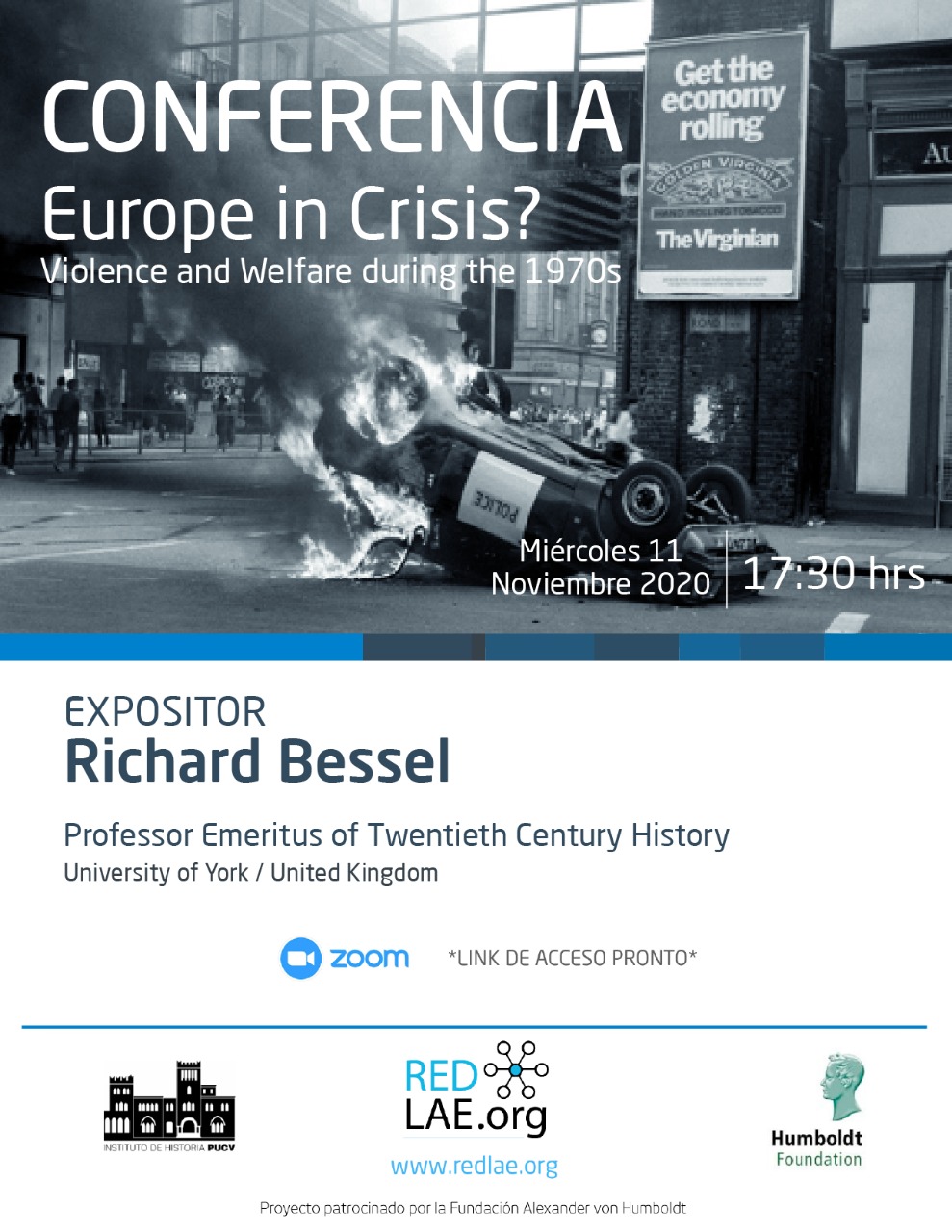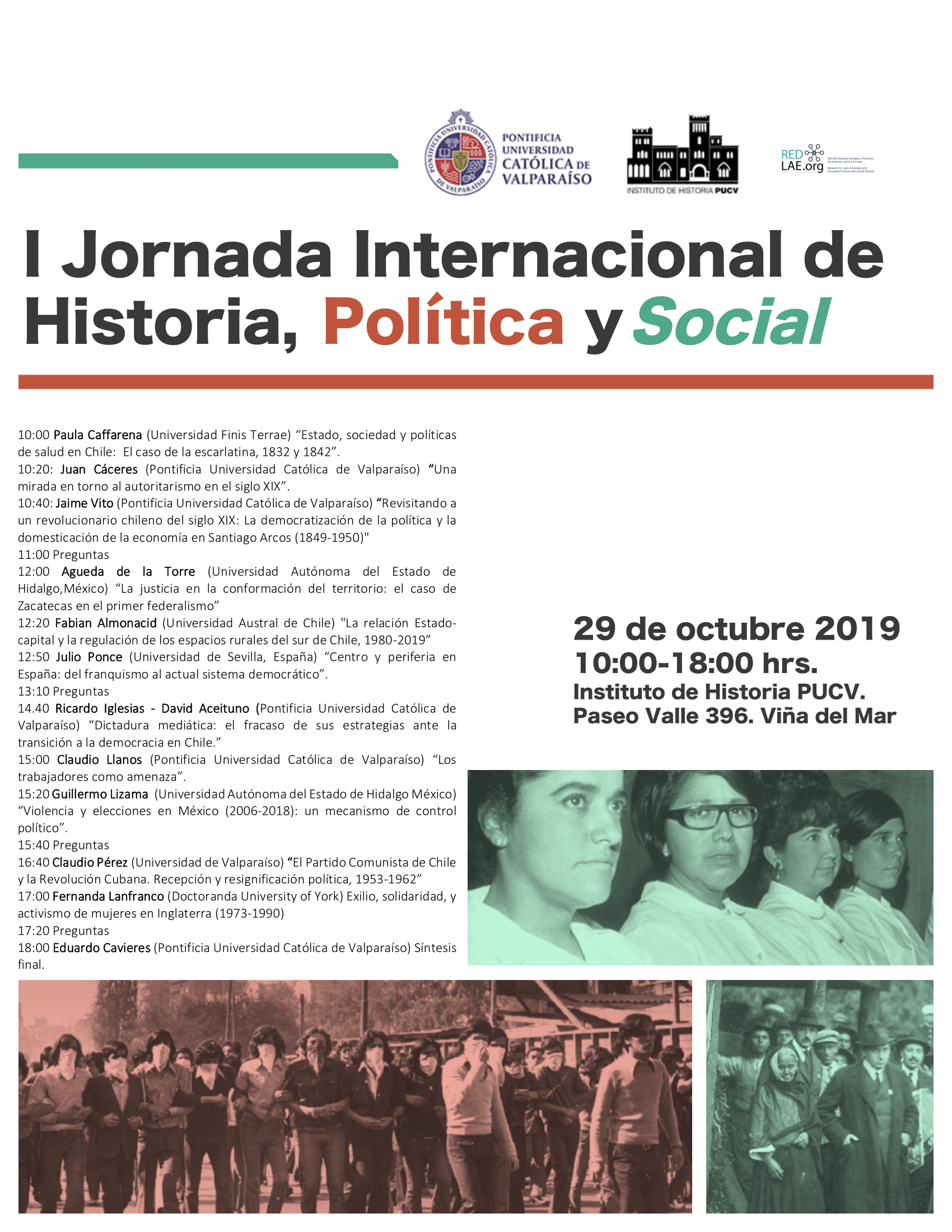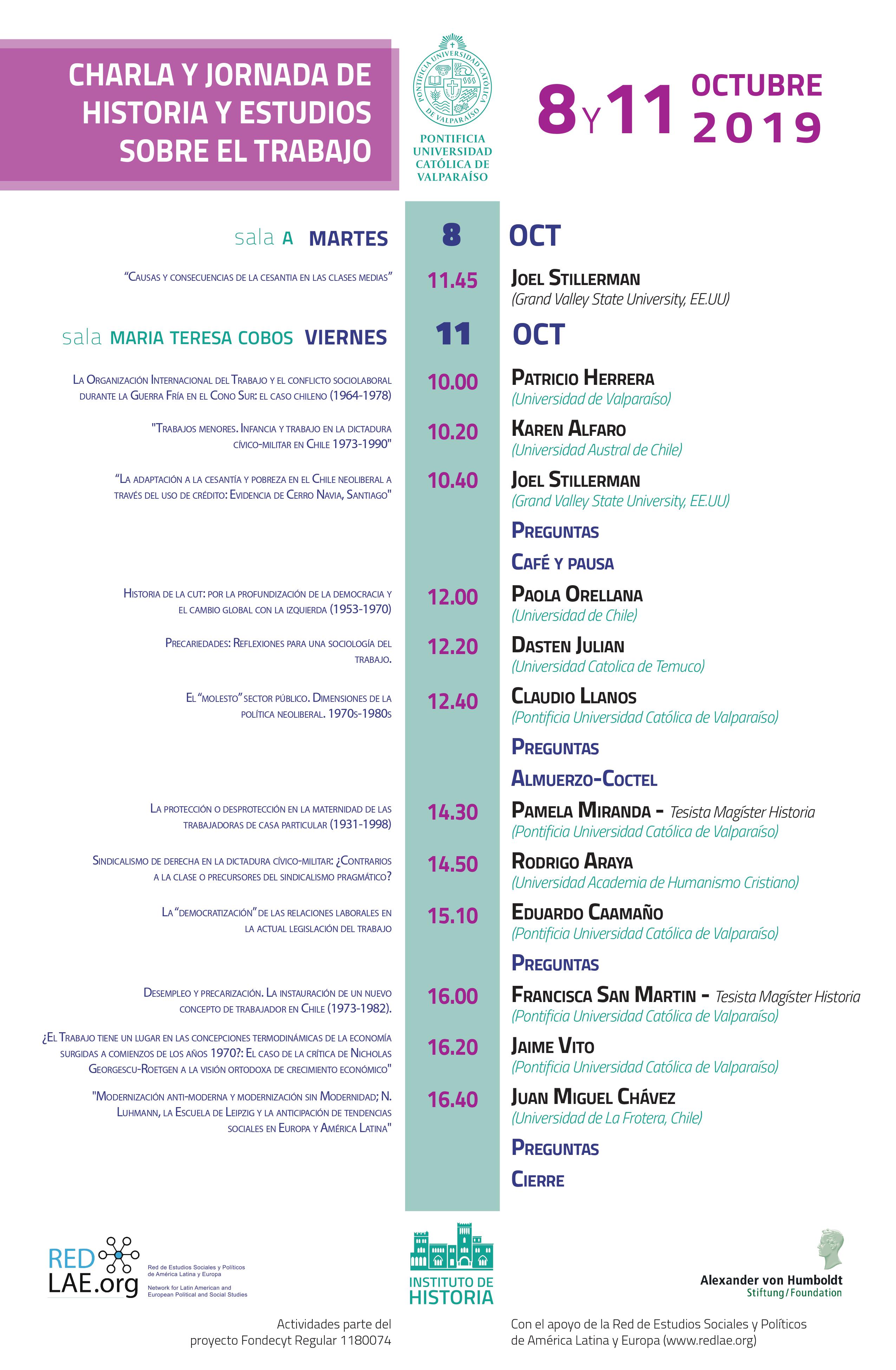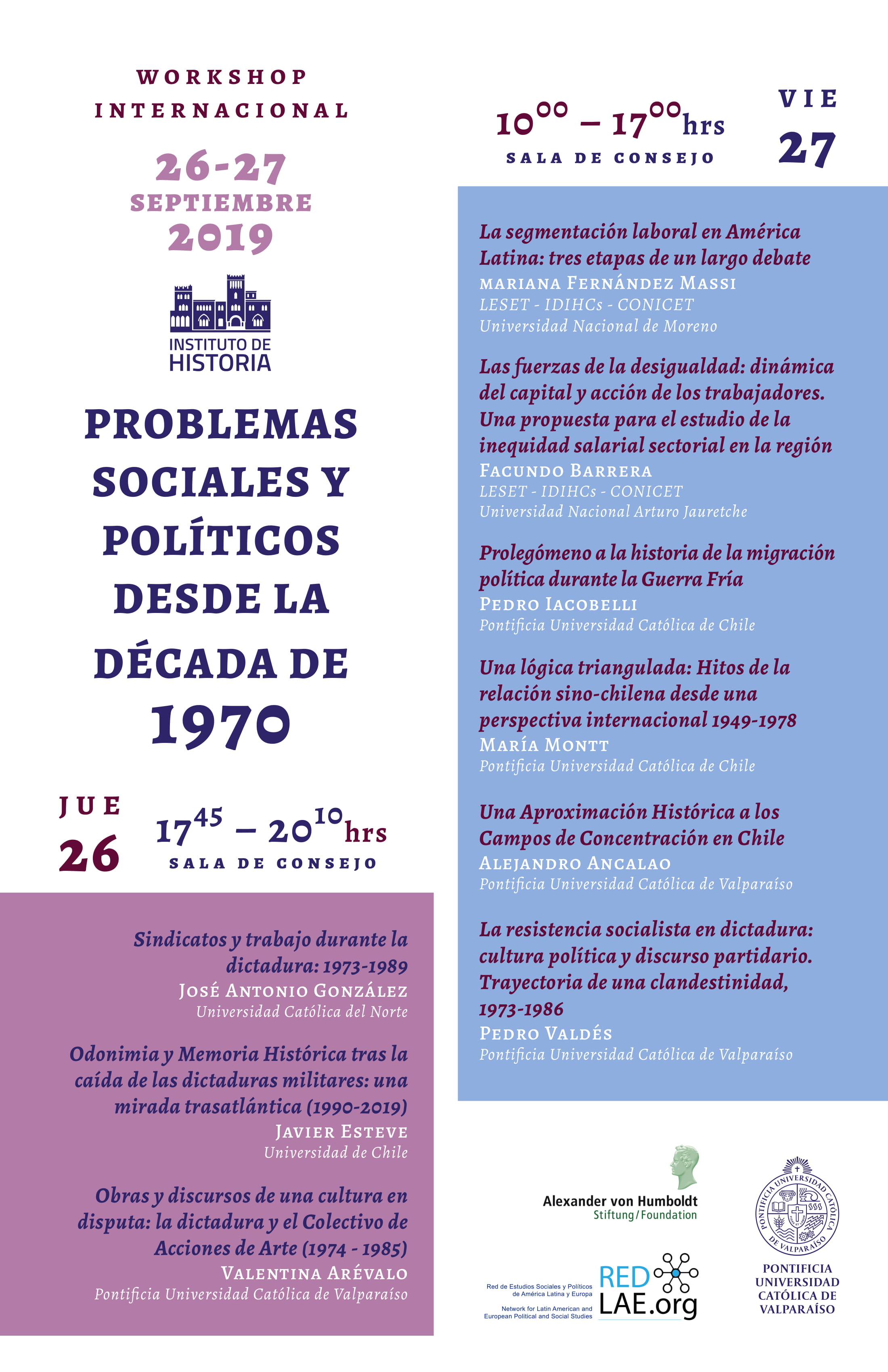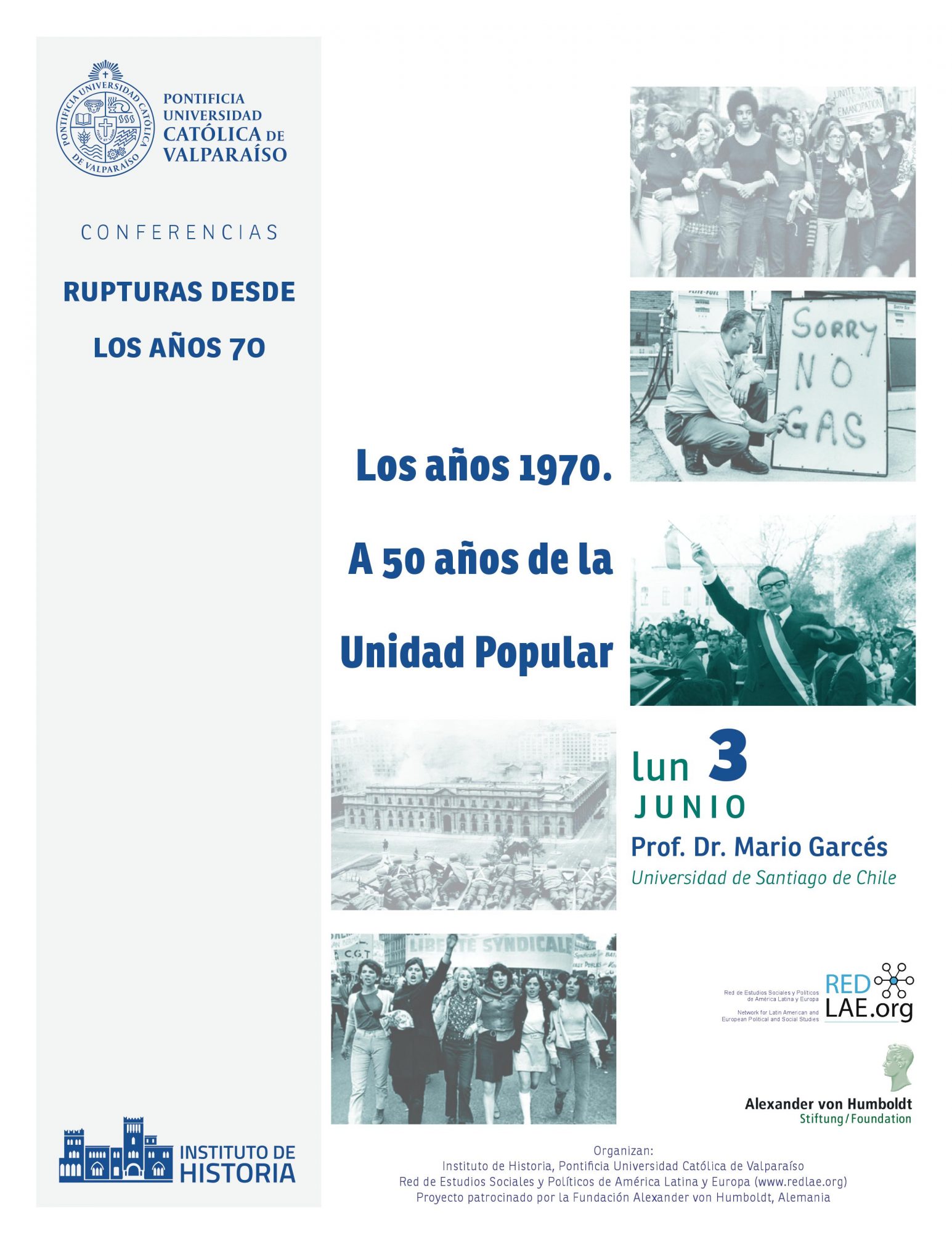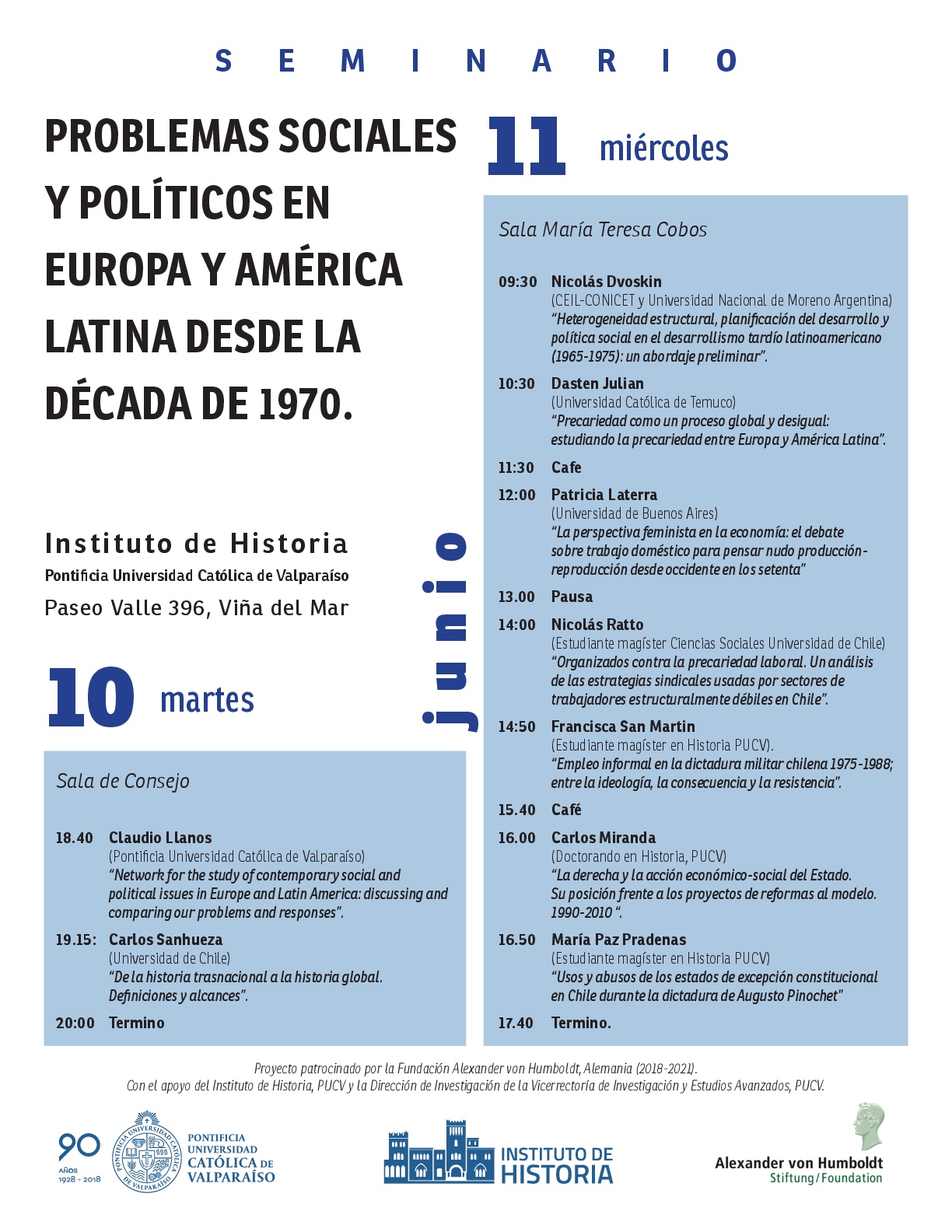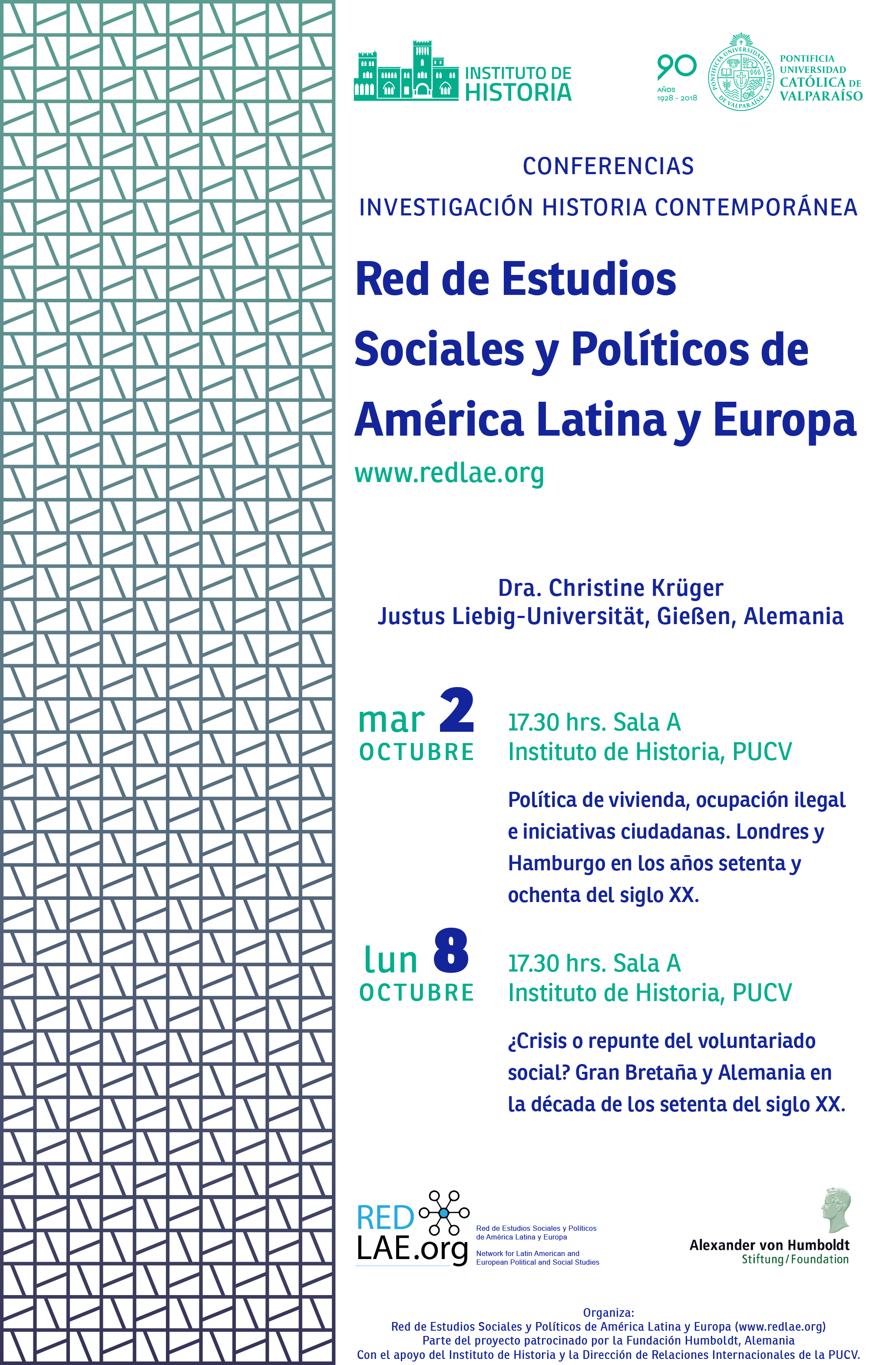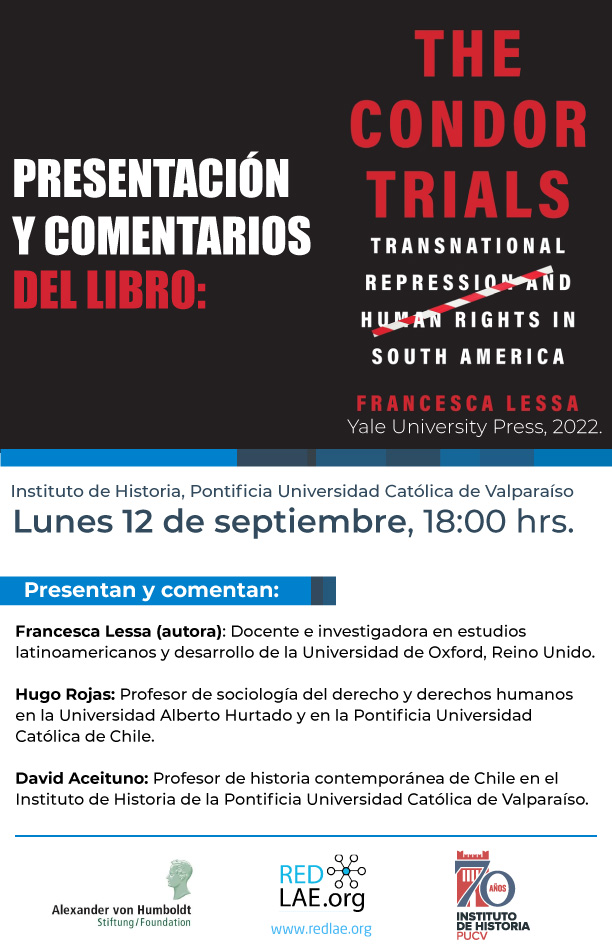Network for Latin American and European Political and Social Studies
The most dangerous worldviews are the worldviews of those who have never viewed the world.
– Alexander von Humboldt
Presentation
As part of a long historical process, since the 20th century, the connections between Europe’s and Latin America’s histories have become more intense due to the increased circulation of people, goods and ideas; globalization has raised common social and political problems like recession, political violence, unemployment, growing inequality, gender issues, environmental issues, but diverging discussions and responses towards them. Thus, in spite of the distance and differences between both world regions, our histories today are more entangled, not least because of global and systemic developments of capitalism.
By addressing the complexity of global and transnational phenomena, one of the aims of this project is to provide knowledge and understanding of other historical and social experiences in order to understand and establish the convergences and distances between Western Europe and Latin America. Furthermore, the network will contribute to the exchange of methodological developments and discussions on comparative and transnational approaches, among the European and Latin American scientific community.
Part of the project sponsored by the Humboldt Foundation
Part of the project sponsored by the Humboldt Foundation, Germany (Humboldt Alumni Award for Innovative Networking Initiatives 2018)
With the support of the Institute of History, the International Relations Office and the Vice-Rectorate of Research of the Pontificia Universidad Católica de Valparaíso, Chile
Members
Germany and Europe
- Dr. Ana Cárdenas Tomažič (LMU, Munich, Alemania)
- Professor Dr. Martin H. Geyer (LMU, Munich, Alemania)
- Professor. Dr. Christine G. Krüger (Universität Greifswald, Alemania)
- Professor Dr. Stephan Lessenich (LMU, Munich, Alemania)
- Professor Dr. Bernhard Rieger, (Leiden University, Holanda)
- Professor Dr. Stefan Rinke (Freie Universität Berlin, Alemania)
- Professor Dr. Richard Bessel (Emeritus of Twentieth Century History at the University of York)
- Dr. Barbara Schröter, Leibniz Centre for Agricultural Landscape Research (ZALF), Working group “Governance of Ecosystem Services”, Müncheberg, Germany // Lund University, Centre for Sustainability Studies (LUCSUS), Lund, Sweden
Latin America
- Professor Dr. Karen Alfaro M. (Instituto de Historia y Ciencias Sociales. Universidad Austral de Chile)
- Professor Dr. Nicolás Dvoskin, (CEIL- CONICET, Universidad Nacional de Moreno, Argentina)
- Professor Dr. Claudio Llanos (Pontificia Universidad Católica de Valparaíso, Chile)
- Professor Dr. Cristina Moyano (Departamento de Historia, Universidad de Santiago de Chile)
- Professor Dr. Carlos Sanhueza (Universidad de Chile)
- Professor Dr. Dasten Julián (Universidad Católica de Temuco, Chile)
- Professor Dr. Facundo Barrera Insua (LESET-IdIHCS/CONICET, Argentina)
- Dra. Mariana Fernández Massi (Universidad Nacional de Moreno, Argentina)
Junior’s researchers
- Carlos Miranda, Ph.D (History) candidate at the Pontificia Universidad Católica de Valparaiso, Chile
- María Fernanda Lanfranco. Candidata a Ph.D (History) University of York, UK.
- Patricia Laterra,Master Student in Gender Studies at Universidad de Ciencias Empresariales y Sociales (UCES), Argentina.
- María Paz Pradenas, Master (History) student at the Pontificia Universidad Católica de Valparaíso, Chile
- Nicolás Ratto. Master (Sociology) student at Universidad de Chile
- Francisca San Martin, Master (History) student at the Pontificia Universidad Católica de Valparaíso, Chile
- Christiane Hoth. Ph. D Candidate. Katholische Universität Eichstätt-Ingolstadt, Germany
- Valentina Árevalo, Master (History) student at the Pontificia Universidad Católica de Valparaíso, Chile
- Pamela Miranda, Master (History) student at the Pontificia Universidad Católica de Valparaíso, Chile
- Valentina Flores, Master (History) student at the Pontificia Universidad Católica de Valparaíso, Chile
- Pedro Valdes, Ph.D (History) candidate at the Pontificia Universidad Católica de Valparaiso, Chile
- Ernesto Uribe, Ph. D (History) student at the Universidad de Santiago de Compostela, Spain
Activity
Dra. Barbara Schröter «Planificación y gobernanza de soluciones basadas en la naturaleza en paisajes fluviales. Experiencias desde Alemania y Costa Rica».
Dr. Barbara Schröter, Leibniz Centre for Agricultural Landscape Research, Working group “Governance of Ecosystem Services”, Müncheberg, Germany // Lund University, Centre for Sustainability Studies (LUCSUS), Lund, Sweden.
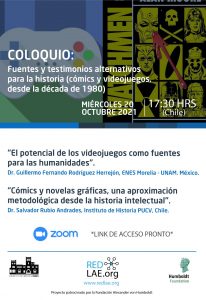
Coloquio: Fuentes y testimonios alternativos para la historia (cómics y videojuegos, desde la década de 1980) Miércoles 20 de octubre. 17:30 hrs (Chile).
«El potencial de los videojuegos como fuentes para las humanidades». Dr. Guillermo Fernando Rodríguez Herrejón, ENES Morelia – UNAM. México.
«Cómics y novelas gráficas, una aproximación metodológica desde la historia intelectual». Dr. Salvador Rubio Andrades, Instituto de Historia PUCV, Chile.
 Lecture by Prof. Dr. Thomas Fischer (Katholische Universität Eichstätt-Ingolstadt, Germany) «Justicia Transicional – 30 años de un campo de investigación”. September 29, 2021. 11.00 hrs (Chile).
Lecture by Prof. Dr. Thomas Fischer (Katholische Universität Eichstätt-Ingolstadt, Germany) «Justicia Transicional – 30 años de un campo de investigación”. September 29, 2021. 11.00 hrs (Chile).
Richard Bessel
¿Europa en crisis? violencia y bienestar durante la década de 1970
Cristiane Hoth (Katholische Universität Eichstätt-Ingolstadt)
“
Ana Cárdenas Tomažič
Conferencia «La emergencia de la sociedad de la (in)visibiliación».
4/09/2020
Cristina Moyano
Conferencia «Narrativas y Ensayos:
el debate sobre el tiempo de la
transición y la consolidación democrática en Chile, 1990-1998».
23/09/2020
"Conferencia Internaciona de Historia,Política y Social"
29 Octubre 2019, Instituto de Historia, PUCV, Chile
Jornada de Historia y Estudios
sobre el trabajo. 9 y 11 de Octubre 2019
Workshop Internacional
"Problemas Sociales y Políticos desde
la década de 1970"
Dr. Christine Krüger’s, conferencia durante su visita en octubre 2018.
Videos Audios
Planificación y gobernanza de soluciones basadas en la naturaleza en paisajes fluviales. Experiencias desde Alemania y Costa Rica.
Dra. Bárbara Schröter
Performance y activismo durante los años 70?
Dra. Margarita Ponce Marín.
Coloquio: Fuentes y Testimonios alternativos para la historia
Dr. Guillermo Rodríguez / Dr. Salvador Rubio
Justicia Transicional: 30 años de un campo de investigación
Conferencia Thomas Fischer
The rise of the (in)visibilization society
Dra.Ana Cárdenas Tomažič
The debate on the social time of transition and democratic consolidation in Chile, 1990-1998
Dra. Cristina Moyano
Connections, limits and borders: Epidemics and their «glocal» dynamics from the history of medicine.
Cristiane Hoth
Europe in Crisis? Violence and welfare during the 1970s
Richard Bessel
Research Notes
Research Notes (REDLAE), from the Social and Political Studies Network of Latin America and Europe (REDLAE) aims to disseminate on going research of those who are part of REDLAE. Over its different numbers, Research Notes demonstrates the growth and development of REDLAE, which is an open space for interdisciplinary and international discussion. It seeks to generate a space for debate and exchange of ideas around its related research projects. Prior to publication, the Research Notes are presented and discussed at the REDLAE meetings and then reviewed for fulfilling the norms and originality criteria.Research Notes also publishes ongoing research by scholars who are carrying out projects that are linked to the issues addressed by REDLAE.
- Editor: Claudio Llanos claudio.llanos@pucv.cl
- Editorial Committee : Ana Cárdenas / Christine Krüger / Nicolás Dvoskin
Nº1 2018
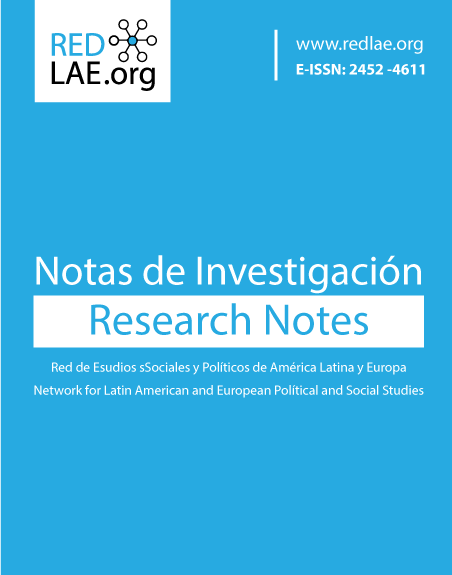
Presentación
Investigadores
Nicolás Dvoskin 5 – 11
Heterogeneidad estructural, planificación del desarrollo y política social en el desarrollismo tardío latinoamericano (1965-1975): un abordaje preliminar.
Christine Krüger 12 – 22
Política de vivienda, ocupación ilegal e iniciativas ciudadanas. Hamburgo en los años setenta y ochenta del siglo XX.
Carlos Sanhueza 23 – 26
Ciencia global: una aproximación bibliográfica.
Jóvenes Investigadores
Carlos Miranda 28 – 31
La derecha chilena y la acción económico – social del Estado.
Su posición frente a los proyectos de reformas al modelo. 1990 – 2010.
María Paz Pradenas 31 – 37
Usos y abusos de los estados de excepción constitucional en Chile durante la dictadura de Augusto Pinochet.
Nicolás Ratto 38 – 45
Aportes para el análisis de “procesos de organización sindical” en sectores de trabajadores estructuralmente débiles.
Comentarios al caso de las trabajadoras de casa particular de Chile (2010-2014).
Francisca San Martín 46 – 51
Desempleo e informalidad en la Dictadura Militar chilena 1975-1988 ¿Una propuesta ideológica?
Nº2 2019

Presentación
Investigadores
Facundo Barrera Insua 1 – 8
Valorización y acción. Una propuesta de estudio de las dinámicas del capital y el trabajo para explicar la inequidad salarial en la Latinoamérica.
Javier Esteve Martí 9 – 15
Odonimia y memoria democrática tras la caída de las dictaduras militares: una mirada transatlántica (1990-2019)
Mariana Fernández Massi 16 – 22
La segmentación laboral en América Latina: tres etapas de un largo debate.
Mario Garcés 23 – 30
Los años setenta. A cincuenta años de la Unidad Popular.
Pedro Iacobelli Delpino 31 – 37
Prolegómeno a la historia de la migración política durante la Guerra Fría.
Dasten Julian 38 – 45
Metodología en el estudio mixto de la(s) precariedad(es) del trabajo. El caso del estudio en la Macrozona Sur (Maule, Biobío y Araucanía) de Chile
Maria Montt Strabucchi 46 – 52
Una lógica triangulada: Hitos de la relación sino-chilena desde una perspectiva internacional 1949-1978
Jóvenes Investigadores
Valentina Arévalo Vidal 53 – 57
Obras y discursos de una cultura en disputa: la institucionalidad de la dictadura y el Colectivo de Acciones de Arte (1974 – 1985)
María Fernanda Lanfranco 58 – 61
Solidaridad, exilio chileno y activismo de mujeres en Inglaterra
Pamela Miranda 62 – 67
Protección o desprotección en la maternidad de las empleadas de casa particular
Nº3 2020

Presentación
Investigadores
Ana Cárdenas Tomažič 4 – 8
La emergencia de la sociedad de la (in)visibilización
Cristina Moyano 9 – 16
El debate sobre el tiempo social de la transición y la consolidación democrática en Chile, 1990-1998
Stefan Rinke 17-25
Democracias y dictaduras en América Latina bajo la sombra de la guerra fría (1954 – 1990)
Jóvenes Investigadores
Ernesto Uribe Cifuentes 27 – 33
Transiciones transnacionales: la superación de las dictaduras en Chile, Argentina y Uruguay y la circulación de ideas entre Europa y el Cono Sur latinoamericano a través de los Think-Tanks alemanes, 1973-1994
Pedro Valdés Navarro 34 – 39
La resistencia socialista en dictadura: cultura política y discurso partidario. Trayectoria de una clandestinidad, 1973-1986
Francisca Acevedo Avsolomovich 40 – 47
La incorporación normativa internacional en la legislación nacional:
los retos y desafíos de la política migratoria chilena desde la perspectiva de género
Valentina Flores 48 – 54
Villas Cooperativas:
Arquitectura, cooperación y vivienda social en Valparaíso 1961 – 1970
Nº4 2021

Presentación
Investigadores
Bárbara Schröter 5 – 13
Planning and governing nature-based solutions in river landscapes -experiences from Germany and Costa Rica
Tomás Villaroel 14 – 18
Representations and staging of Colonia Dignidad as an alleged “victim”. An approximation.
Jóvenes Investigadores
Salvador Rubio Andrades 19 – 24
Comics and graphic novels, a theoretical-methodological approach from intellectual history.
Guillermo Fernando Rodríguez Herrejón 25 – 31
The potential of video games as sources for the humanities
Margarita Itzagery Marin 32 – 37
Activism and performance during the 70’s
Christiane Hoth de Olano 33 – 49
Connections, limits and frontiers: Diseases, epidemics and their «glocal» dynamics from the history of medicine
News

